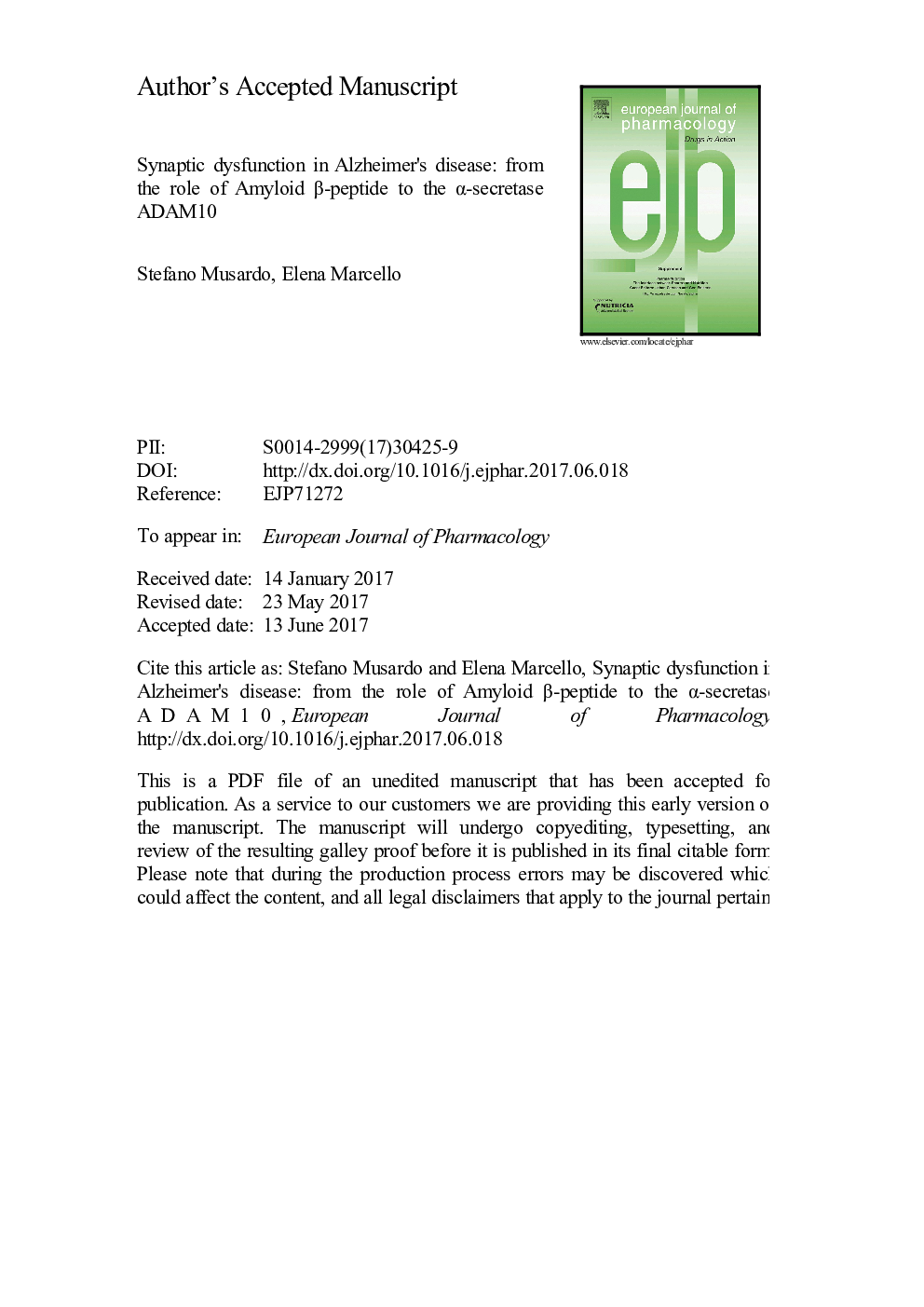| Article ID | Journal | Published Year | Pages | File Type |
|---|---|---|---|---|
| 8529729 | European Journal of Pharmacology | 2017 | 28 Pages |
Abstract
Alzheimer's disease (AD) is emerging as the most prevalent and socially disruptive illness of aging populations as more people live long enough to become affected. Although AD is placing a considerable and increasing burden on patients, caregivers and society, it represents the largest unmet medical need in neurology, because it is currently incurable. In the last few years, the amyloid hypothesis, which points to amyloid β-peptide (Aβ) as the initiating factor in AD, had a central role in the development of therapeutic strategies for AD. However, the recent clinical trials targeting Aβ have been disappointing. The need to obtain a comprehensive picture of AD pathogenesis is strong as ever. In this framework, this review focuses on Aβ effects on the synapses and on ADAM10, the enzyme able to prevent Aβ formation, analysing its function in the synapse, its contribution to AD pathology and discussing its potential as pharmacological target.
Related Topics
Life Sciences
Neuroscience
Cellular and Molecular Neuroscience
Authors
Stefano Musardo, Elena Marcello,
